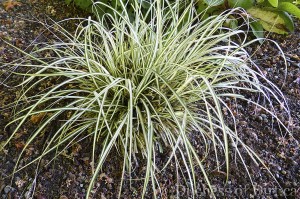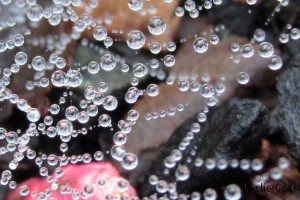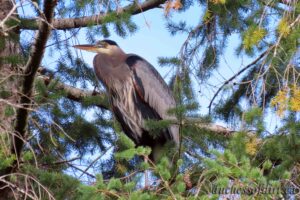Quote of the Week
Another plant ID updated
 by Leslie Cox; Wednesday; October 29, 2024
by Leslie Cox; Wednesday; October 29, 2024
Another plant ID has been updated in the new format layout with photos that are now working as they should when you click on them.
Check out Carex oshimensis ‘Evergold’.
Carex oshimensis ‘Evergold’
 Carex oshimensis ‘Evergold’
Carex oshimensis ‘Evergold’
(KAIR-ecks oh-shih-MEN-siss)
syn. Carex morrowii ‘Aureovariegata’
Family: Cyperaceae
Common name: variegated Japanese sedge
Zone: 5 – 9
Height: 10 – 16 in (25 – 40 cm)
Spread: 10 – 16 in (25 – 45 cm)
Aspect: partial shade; full shade
Soil: medium; moist; well-draining
Water: moderate; regular
Description: A slow growing, evergreen perennial grass with a dense, clump-forming habit. Narrow leaves with creamy yellow centres edged in green form a ground-hugging, arching fountain shape. Insignificant brown flower spikes on triangular stems appear in summer.
Special Notes: Native to the rocky slopes and dry wooded areas of Honshu Island, Japan where it is commonly known as Oshima kan suge. A low maintenance, fine-textured grass which tolerates moist areas such as beside ponds but needs good drainage. Most references place this in at least partial shade but it does well in full sun with regular water. Foliage can be cut back to a low mound in late winter to rejuvenate the leaves. Spreads by rhizomes. Propagate by division in early spring or autumn. Relatively few pests and disease problems. Deer and rabbit resistant.
In our Zone 7a garden: Several clumps of ‘Evergold’ dot the landscape in my front garden as this grass species does exceptionally well in competition with the roots of my chestnut tree (Aesculus hippocastanum) and silverleaf maple (Acer saacharinum). As for deer resistance, I cannot confirm this fact as our garden is completely fenced against buffet-hunting ungulates. However, there are rabbits in the neighbourhood which can sneak in but they completely shun this grass, preferring to nibble on another grass called, Hakonechloa macra ‘All Gold’, my tulips and hosta leaf tips instead.
RHS Award of Garden Merit 1993
Posted on April 27, 2013; updated on October 30, 2024
Teaser Tuesday
by Leslie Cox; Tuesday; October 29, 2024
An ardent fisherman showing a lot of patience in acquiring its next meal.
We often spot this heron in one of three roosting spots overlooking the Black Creek estuary. Its fourth favourite fishing spot is in the marsh next to the Black Creek when the river is flooding in a high tide.
This heron is quite used to us, and Sadie, by now and will often pose elegantly for us. Sometimes I even think he calls specifically to us when he spots us before we spot him…just to let us know where he is. Silly, I know. But honestly, it sure seems like it because it has happened a few times now.
Do you know?
by Leslie Cox; Monday; October 28, 2024
Do you know…
…why the colours of Halloween are black and orange?
The colours can be traced back to the ancient Celtic festival of Samhain, (pronounced SOW-in). This is a Gaelic festival celebrating the end of harvest season and the beginning of winter which was thought of as the darker half of the year.
So, the colour black represents the death of summer and bright orange represents the life of full harvest.



